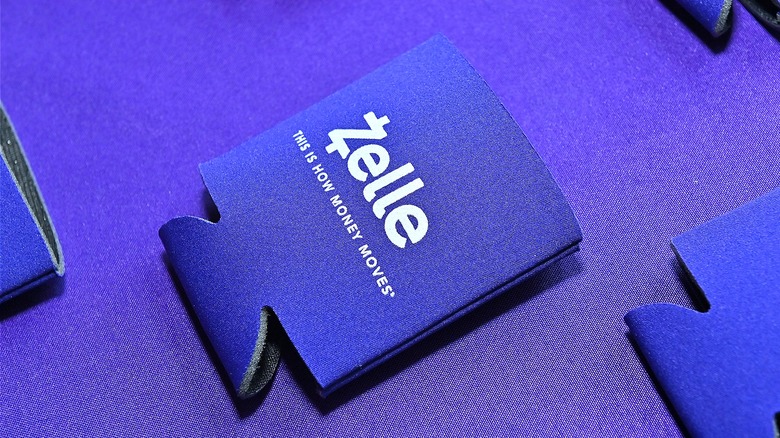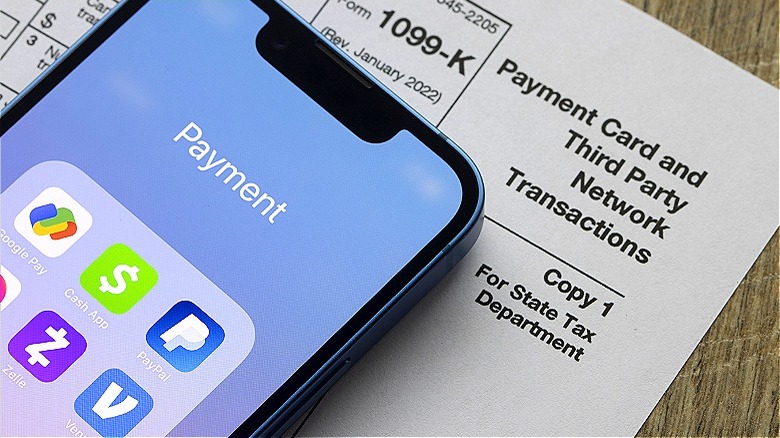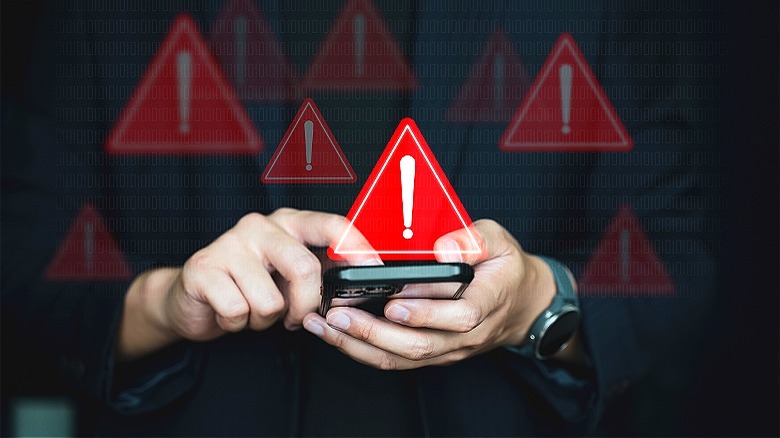The Do's And Don'ts Of Using Zelle
With the growth of peer-to-peer payments (P2P) and digital wallets, chances are you've used an app to send or receive money. According to a 2023 report from Consumer Reports, 40% of Americans reported using P2P services at least once a month, while LendingTree found that 84% of people had used P2P services at some point, making them more ubiquitous than ever. While these payment apps, like Venmo, Paypal, and Zelle can add convenience to your banking experience, they're not without their risks.
While PayPal is technically the most popular P2P app out there (with 84% of consumers reporting using it), Zelle has been slowly growing in popularity by taking a different approach. Rather than independent apps like Venmo or Cash App, Zelle is generally offered through your bank. This not only makes it easier to use (you can avoid adding yet another app to your phone if you want), but it also means the network for whom you can send money to is much larger. As long as one person in a financial exchange has a bank account with a participating financial institution, then they can send money via Zelle without the back-and-forth of figuring out which app both might have. While Zelle certainly helps consumers with everyday banking needs, there are downsides to be aware of. We spoke with Matt Schulz, personal finance expert and author of "Ask Questions, Save Money, Make More," about the do's and don'ts of using an app like Zelle as part of your personal finances.
What makes Zelle different
It can be important to differentiate Zelle from other popular P2P apps as well as from processes like wiring money. Matt Schulz explained some of the key differences between Zelle and other payment apps like Venmo: "Zelle is different from Venmo in a few ways. One big one is that you don't keep money in your Zelle app, while you can in Venmo. Zelle is just about facilitating the transaction between two different accounts, but Venmo can be used as a wallet where you can store money for future use."
While Zelle does have it's own app and allows you to link a debit card, the app primarily works through your existing banking institution. If your bank or credit union is a participating member of the Zelle network, then you'll see the option to use Zelle directly through your bank's app or website. This can make transferring money to different people or accounts easier. Unfortunately, this veneer of official banking can also make it seem like Zelle is a safer option than other payment apps.
Schulz explained another important difference between the apps. "Also, Zelle transactions can be faster than Venmo," he said. "Yes, that money may appear in your Venmo app quickly, but the actual transfer of the money in question may take a while." This is because, unlike an app like Venmo, Zelle is directly connected to your banking institution, and by extension, your account. It's worth mentioning that the company that owns Zelle is actually co-owned by seven of the country's big banks.
Consumer safety
There's a lack of consumer safety when using Zelle. In 2022, Sen. Elizabeth Warren even issued a scathing report about the rampant fraud happening on the app. While Matt Schulz explained to us that almost everything is susceptible to scams at this point, it's still important to be vigilant when handling financial information. Said Schulz, "Bad guys are really smart and are getting more savvy about what they do. That's because there's just so much for them to gain by doing so. With Zelle, Venmo, and any other financial app, it is important to proceed with caution." This means that adding additional security measures like two-step verification for your financial apps, regularly changing passwords, and even adding a lock screen to your phone can all help.
Perhaps one of the most important things to pay attention to when using any payment app is who you're sending money to. While it's ultimately best to never send money to strangers, if you do find yourself considering an electronic payment to a new seller, it's important to research them ahead of time. Schulz explained, "It's so, so important to be careful with who you transfer money to. A mistake can leave you dependent on the kindness of strangers to get your money back. These transfers aren't protected the way a fraudulent credit card transaction would be, for example." It is also worth noting that the growth of fake "accidentally sent" money scams might also make users less willing to send your money back even if you made an honest mistake.


